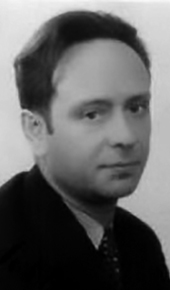Search for Names, Places and Biographies
Already layed Stumbling Stones
Suche
Viktor Ullmann * 1898
Dammtorstraße 28 (Oper) (Hamburg-Mitte, Neustadt)
1942 Theresienstadt
1944 Auschwitz ermordet
- http:/
/ www.verstummtestimmen.de/
(Die Stolpersteine vor der Staatsoper wurden aus Anlass der Ausstellung 'Verstummte Stimmen' verlegt. Weitere Informationen finden Sie unter dem vorstehenden Link)
further stumbling stones in Dammtorstraße 28 (Oper):
Gustav Brecher, Dr. Max Fraenkel, Hermann Frehse, Camilla Fuchs, Mauritz Kapper, Jacob Kaufmann, Ottilie Metzger-Lattermann, Kurt Abraham Salnik, Joseph Schmidt, Magda Spiegel, Bruno Wolf
Viktor Ullmann, b. 1.1.1898 in Teschen, deported on 9.8.1942 to Theresienstadt, deported again on 10.16.1944 to Auschwitz-Birkenau, murdered on 10.18.1944 in Auschwitz-Birkenau
Dammtorstraße 28 (Oper)
Viktor Ullmann was the son of Maximilian Ullmann (1861-1938), a convert from Judaism to Catholicism and a professional soldier of the Austro-Hungarian Empire, and Malwine, née Billitzer (1873-1940), daughter of a Viennese attorney. From 1909 to 1916, Viktor attended a preparatory high school in Vienna and took part as an officer in the First World War, from 1916 to 1918. Between 1918 and 1920, he studied law and composition in Vienna, interrupted both courses of study and moved to Prague. After the collapse of the Habsburg Empire, his north Moravian birthplace, lying east of Ostrava (Ostrau), was divided between Czechoslovakia (Český Těšín) und Poland (Cieszyn), whereby the larger part, including the old town and the castle, fell to Poland.
In 1919, he married his fellow student Martha Koref (b. 1894 in Prag, murdered after 1942 in Treblinka); the marriage was dissolved in 1931. In 1931, he married Anna Winternitz (b. 1907 in Prague, murdered in October 1944 in Auschwitz. They had four children. The marriage ended in divorce in 1941.
Viktor Ullmann received engagements as the conductor of the New German Theater in Prague (1922-1927), as well as the head of opera in Northern Moravian Aussig on the Elbe River (Ústí nad Labem) for 1927-1928 and at the Zurich playhouse (1929-1931). In addition, he worked in composition from 1919 until 1944 (continuing in the Theresienstadt ghetto at the end of his life); he was also a pianist and director. The texts he fell back on were by, among others, the philosopher Friedrich Nietzsche, the Swiss poet and anthroposophist Albert Steffen (1884-1963), as well as those of the poets Johann Wolfgang von Goethe, Conrad Ferdinand Meyer, Novalis, Friedrich Hölderlin, Georg Trakl, Frank Wedekind, and Klabund (Alfred Henschke). He also put to music texts by Hans Günther Adler (1910-1988), who was also in the Theresienstadt ghetto and later became its chronicler.
In the late 1920s, he turned to the anthroposophy of Rudolf Steiner, whom he visited in 1929 for the first time at the center of the anthroposophical movement, the "Goetheanum” in Dornach, Switzerland; in 1931, he joined the Anthroposophical Society. For a short time (1931-1933), Viktor Ullmann was also the proprietor of the anthroposophical Novalis Bookstore in Stuttgart (formerly run by Hans Mändl under the name Goetheanum Bookstore). In mid-1933, the bookstore went bankrupt and Ullmann left National Socialist Germany for Prague, where he worked independently as musician, music teacher, and journalist. The Anthroposophical Society was banned by the Nazis in 1935. In the summer of 1938, once again Ullmann stayed for three weeks in Dornach but had to leave Switzerland again after this brief stay because of its restrictive immigration policy. Four of Ullmann’s art songs were performed in early August 1938 at the "Goetheanum.”
After the Munich Agreement (9.30.1938), the Sudetenland was occupied by the German Armed Forces (10.15.1938); five months later, the German Army marched into the rest of Czechoslovakia (3.15-16.1939). Nazi Germany erected the "Reich Protectorate of Bohemia and Moravia,” as well as the "protected state” of Slovakia under German influence. The anti-Jewish measures of the National Socialist State were now implemented in Prague. The theater general director and SS-Major (Sturmbannführer) Oskar Walleck (1890-1976, member of the Nazi Party and SS since November 1932) was installed as the director of Prague’s state theaters in September 1939. On account of his Jewish origins, Viktor Ullmann was banned from practicing his profession. Two of his children succeeded in fleeing to England in the summer of 1939 as members of a Children’s Transport.
On 18 January 1941, he received an identity card for the Prague ghetto. In October 1941, his third marriage took place, this time to Elisabeth Meissel, née Frank (b. 1900, d. 1944 in Auschwitz). On 8 September 1942, the couple were sent to the Theresienstadt ghetto and from there, on 16 October 1944, to the extermination camp Auschwitz-Birkenau.
In 2007, in front of the Hamburg City Theater, a commemorative stone was laid for Viktor Ullmann. Neither performance of his work nor record of his activity in Hamburg is documented. The commemorative stone installation took place in connection with the 2006 exhibition in the Hamburg State Opera honoring persecuted musicians and was intended to be a lasting monument to his fate.
Translator: Richard Levy
Kindly supported by the Hermann Reemtsma Stiftung, Hamburg.
Stand: June 2020
© Björn Eggert
Quellen: 5; 8; Heer/Kesting/Schmidt (Hrsg.): Verstummte Stimmen, S. 51; Meyers Taschenlexikon, Band 6, S. 110 (Tschechoslowakei); Plato (Hrsg.): Anthroposophie, S. 855–856 (Lexikonbeitrag von Ingo Schultz zu Viktor Ullmann); Wulf: Theater, S. 124–127 (Walleck); www.lexm-uni-hamburg.de (Viktor Ullmann); www.wikipedia.de (Viktor Ullmann); www.yadvashem.org Page of Testimony Viktor Ullmann (Zugriff 5.5.2017).
Zur Nummerierung häufig genutzter Quellen siehe Link "Recherche und Quellen".


